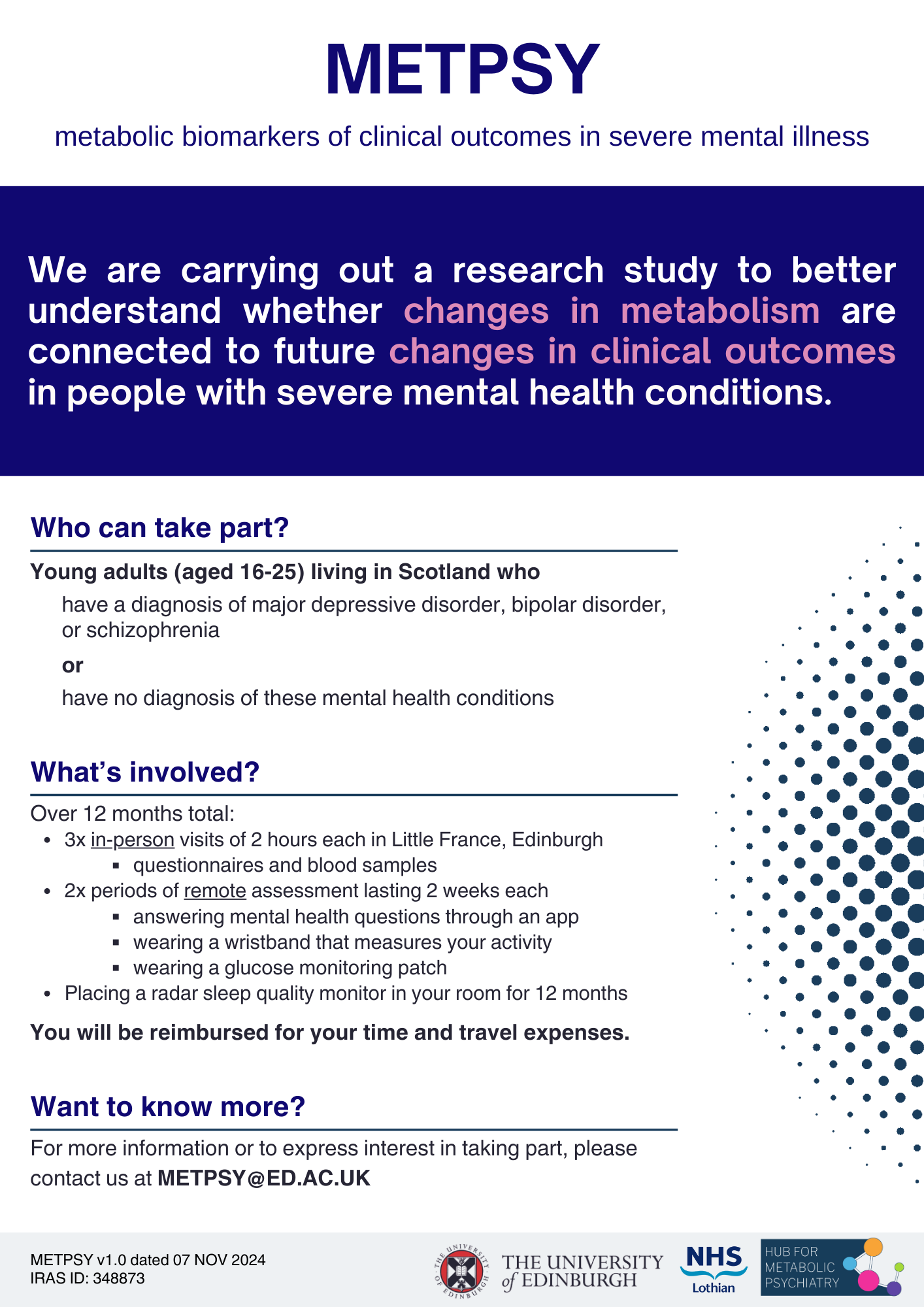
Author name:
Arish Mudra Rakshasa-Loots
Institution name: Metabolic Psychiatry Hub
Metabolic biomarkers of clinical outcomes in severe mental illness (METPSY) is a new clinical research study at the Metabolic Psychiatry Hub at the University of Edinburgh that is now recruiting.
Dr. Arish Mudra Rakshasa-Loots, part of the team co-ordinating the study tells us more.
The goal of METPSY is to better understand whether issues in metabolism (that is, the processes through which our bodies break down food and produce energy) are linked to changes in mental health outcomes.
People with severe mental health conditions tend to have high rates of metabolic disorders such as type 2 diabetes, obesity, and heart disease. There is also some evidence that treatments for these metabolic disorders can help to improve mental health outcomes. More research is needed to fully understand the links between metabolism and mental health, and this is why we are carrying out the METPSY study.
We published a “protocol” paper for the METPSY study last month. Protocol papers are an important tool for open science, because they help ensure that research is carried out with a well thought-out plan right from the outset.
The paper explains we’ll ask our 120 participants to attend three in-person visits to assess clinical symptoms and collect blood samples, which we’ll use to understand metabolic biomarkers.
We’ll also collect information about participants using app-based mental health assessments, and sleep & glucose monitoring.
Scroll down to the bottom of this page to read more details about what taking part in this study involves.

Because our protocol paper is available publicly, it also means that we hold ourselves accountable to the research plan. It also means that other researchers who may be interested in carrying out similar studies can see our research plan and use it to design their own research, so that we can streamline research efforts in the field and avoid any unnecessary duplication of efforts.
We’re very excited that recruitment for the study is now officially open as of 1 April. We are looking for young people (aged 16-25) living in Scotland who have a diagnosis of major depression, bipolar disorder, or schizophrenia to take part.
We are working alongside research networks and community organisations across Scotland to make sure that we recruit a diverse group of participants for the study. All of this work is continuing with ongoing input and consultation from our Lived Experience Advisory Panel.
METPSY will be one of the first larger-scale studies to track changes in metabolism and mental health in young people with severe mental health issues. Results from this study might help us better understand whether metabolic issues arise before changes in mental health, or vice versa. We also hope to find specific molecules in blood related to metabolic processes which may predict these changes in mental health.
A better understanding of the relationship between metabolism and mental health may help support a “whole body” perspective on mental health, acknowledging that people’s physical and mental health influence each other. In the long term, our findings in this study may help to improve the healthcare of people with SMI by identifying new targets for prediction and treatment of mental health issues.



